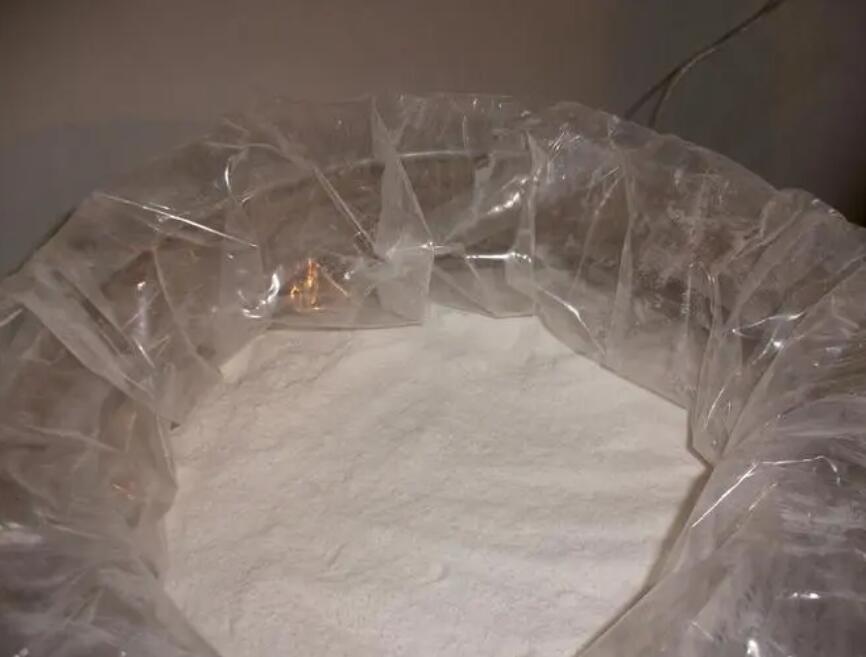Sinoright Blog
Pharmaceutical Intermediates
What are "Pharmaceutical Intermediates Colloquially”
Pharmaceutical intermediates are fine chemical products used in the production process from pharmaceutical chemical raw materials to APIs or drugs. The synthesis of chemical drugs relies on high-quality pharmaceutical intermediates. According to the regulations of the China Drug Administration, pharmaceutical intermediates can be considered as raw materials for drugs. They are not required to follow the same rules as drug production for reporting approval or applying for a batch number. However, when used in drug synthesis, the product specifications and quality must meet certain standards. Typically, the customer will audit the supplier to ensure they are qualified. Pharmaceutical intermediates are classified as fine chemicals. Currently, the domestic fine chemical industry is highly competitive in the market. The China Chemical Industry Association regulates the fine chemical industry through self-regulatory management.In regulated markets such as the United States, Europe, and Japan, it is only necessary to submit the appropriate DMF documents and complete official registration in order to export APIs. While there are no mandatory requirements for the export of pharmaceutical intermediates, it is still possible to submit technical documents for official registration.

Categories of pharmaceutical intermediates
By Applications
Pharmaceutical intermediates can be categorised based on their application areas, including intermediates for antibiotics, antipyretic and analgesic drugs, cardiovascular system drugs, and anticancer pharmaceutical intermediates. Pharmaceutical intermediates include various types such as imidazole, furan, phenolic, aromatic, pyrrole, pyridine, biochemical reagents, sulphur-containing, ammonia-containing, halogenated, heterocyclic, starch, mannitol, microcrystalline cellulose, lactose, dextrin, glycols, icing sugar, inorganic salts, ethanol, stearates, amino acids, ethanolamines, potassium salts, sodium salts, and others.By technology
Pharmaceutical intermediates are classified as primary or advanced based on their technical content. Primary intermediate suppliers can only provide simple intermediate production at the front end of the industry chain. Therefore, competitive and price pressures are the largest factors affecting them. The price fluctuations of basic chemical raw materials have a greater impact on them. On the other hand, senior intermediate suppliers not only have a strong bargaining power over primary suppliers, but also produce senior intermediates with higher technological content. They maintain closer relationships with multinationals, which means that raw material price fluctuations have less of an impact on them. More importantly, as they undertake the production of advanced intermediates with higher technological content and maintain closer ties with multinational companies, raw material price fluctuations have less impact on them.
Development status of domestic pharmaceutical intermediates
Pharmaceutical intermediates are chemicals produced during the process of synthesising drugs. They are considered fine chemical products and are manufactured using basic chemical raw materials. The downstream industry for pharmaceutical intermediates includes the chemical drug API and preparation manufacturing industry. During the early stages of the pharmaceutical intermediates industry, many small chemical enterprises entered the field due to low market access thresholds, small investments, and higher profit levels compared to ordinary chemical products.According to Wisdom Research Consulting, pharmaceutical intermediates are single chemical substances with high purity obtained through chemical or biological reactions, similar to the production method of chemical raw materials. Therefore, China's chemical raw materials manufacturers usually produce pharmaceutical intermediates, and their level of development is closely related to the development of chemical raw materials and chemical drug preparations. In the future, the expiration of many patented drugs will lead to the availability of generic drugs. This will create a broad market space and provide good opportunities for development in the pharmaceutical intermediates industry.
Advantages
Has a unique cost advantage
(1) Low environmental protection costs: China's current enterprise sewage costs are significantly lower than those of developed countries;(2) Low labour cost: The salary level of both R&D personnel and industrial workers in China is significantly lower than that of developed countries;
(3) Low cost of raw materials: China has a strong petrochemical system, the main chemical raw materials have achieved self-sufficiency, and can guarantee the supply of low-cost raw materials;
(4) Low investment cost: After years of progress, China has formed a more mature industrial system, and the cost of chemical equipment purchase, installation and building construction is lower than that of developed countries.
Advantage of market space
The market of developed countries represented by the United States is growing slowly, but the market of developing countries will grow rapidly, and generic drugs are a large market, and the supply of generic drugs only comes from dozens of large-scale manufacturers, of which there is no Chinese enterprise for the time being; India is a large country for the production of generic drugs.India is a large producer of generic drugs, China has the space to chase, while the big pharmaceutical companies begin to touch the field of generic drugs. With the aggravation of China's population aging phenomenon in the future, the domestic demand for related drugs will also be a rising trend, the domestic pharmaceutical intermediates enterprises will benefit from the rapid progress of the pharmaceutical industry market.
Pharmaceutical production as a fine chemical industry in the field of important industries, has become the focus of progress and competition in the past 10 years, in the next few years the world's new drugs will focus on the discussion of the following categories of drugs: brain function improvement drugs, anti-rheumatic arthritis drugs, anti-AIDS drugs, anti-hepatitis and other viruses, lipid-lowering drugs, anti-thrombotic drugs, antitumour agents, platelet-activating factor antagonists, glycosides cardiac agents, antidepressants, Anti-schizophrenic and anti-anxiety drugs. The development of intermediates for these drugs is an important way to develop pharmaceutical intermediates in the future and to expand new market space.
Challenges
Rapid technological process iteration
Pharmaceutical intermediates industry is a technology-intensive industry, the speed of product renewal, a product is generally on the market for 3 to 5 years, its profitability will drop significantly, the company's ability to expand its business depends largely on the success of the R & D activities, which forces companies to continue to develop new products or continuously improve the production process in order to maintain a high production profit.Increasingly Stringent Environmental Requirements
In recent years, the state attaches more and more importance to environmental protection, the introduction of a series of policies and regulations to promote the development of environmental protection industry in this situation, the construction of ecological civilisation rises to the height of the national strategy. Environmental protection work is becoming more and more strict about the relationship between environmental protection and economic discussion is also more and more intense. The industry's production process involves a variety of complex chemical reactions, and consequently produces wastewater, waste gas, solid waste (collectively referred to as "three wastes") and other polluting emissions, if not properly handled, will have a certain adverse impact on the surrounding environment.Pharmaceutical intermediates industry part of the enterprise capital strength is weak
The development and technological progress of the pharmaceutical intermediates industry requires substantial investment in research and development, whether it is new technology, new product development and transformation, all need financial support, but in addition to a few large enterprises in the industry are mostly small and medium-sized enterprises, there is a certain lack of financial strength, and its main source of funds for their own business accumulation and bank loans, in the scale of funds and sources of channels there is a certain lack, which limits the scientific and technological innovation of enterprises in the industry. This limits the scientific and technological innovation of enterprises in the industry.Summary
China is an important participant in the global pharmaceutical supply chain, from the perspective of long-term development trend, China's pharmaceutical industry has a unique advantage, China's pharmaceutical enterprises continue to increase the research and development of generic and innovative drugs as well as the improvement of the pharmaceutical level, the future development prospects remain good.Click here to check the Pharmaceutical Intermediates we can supply.
